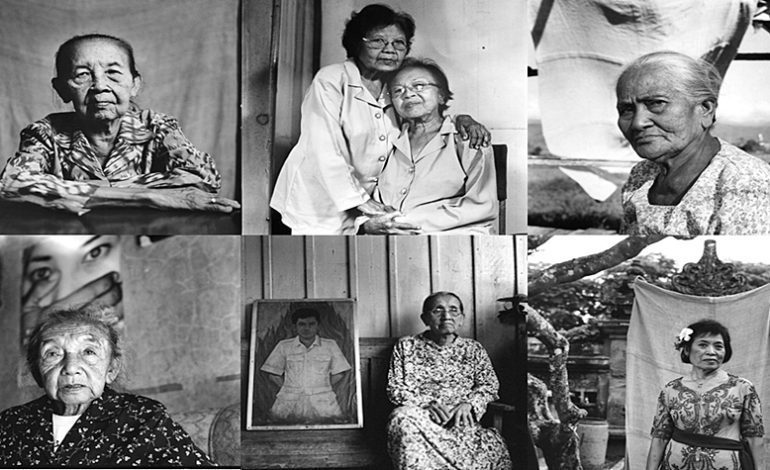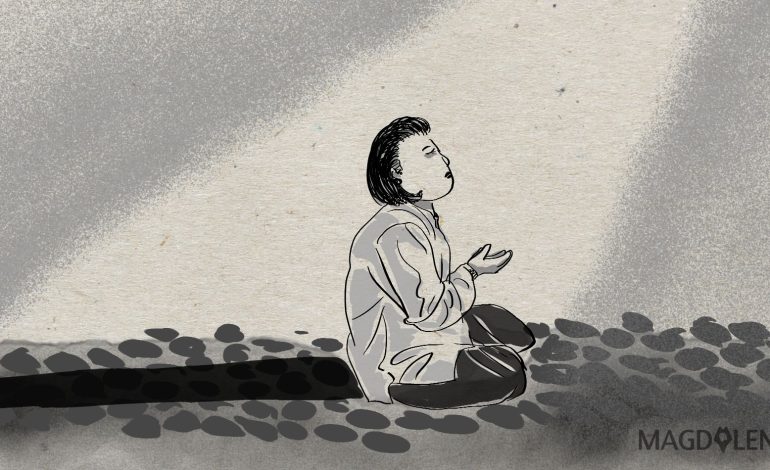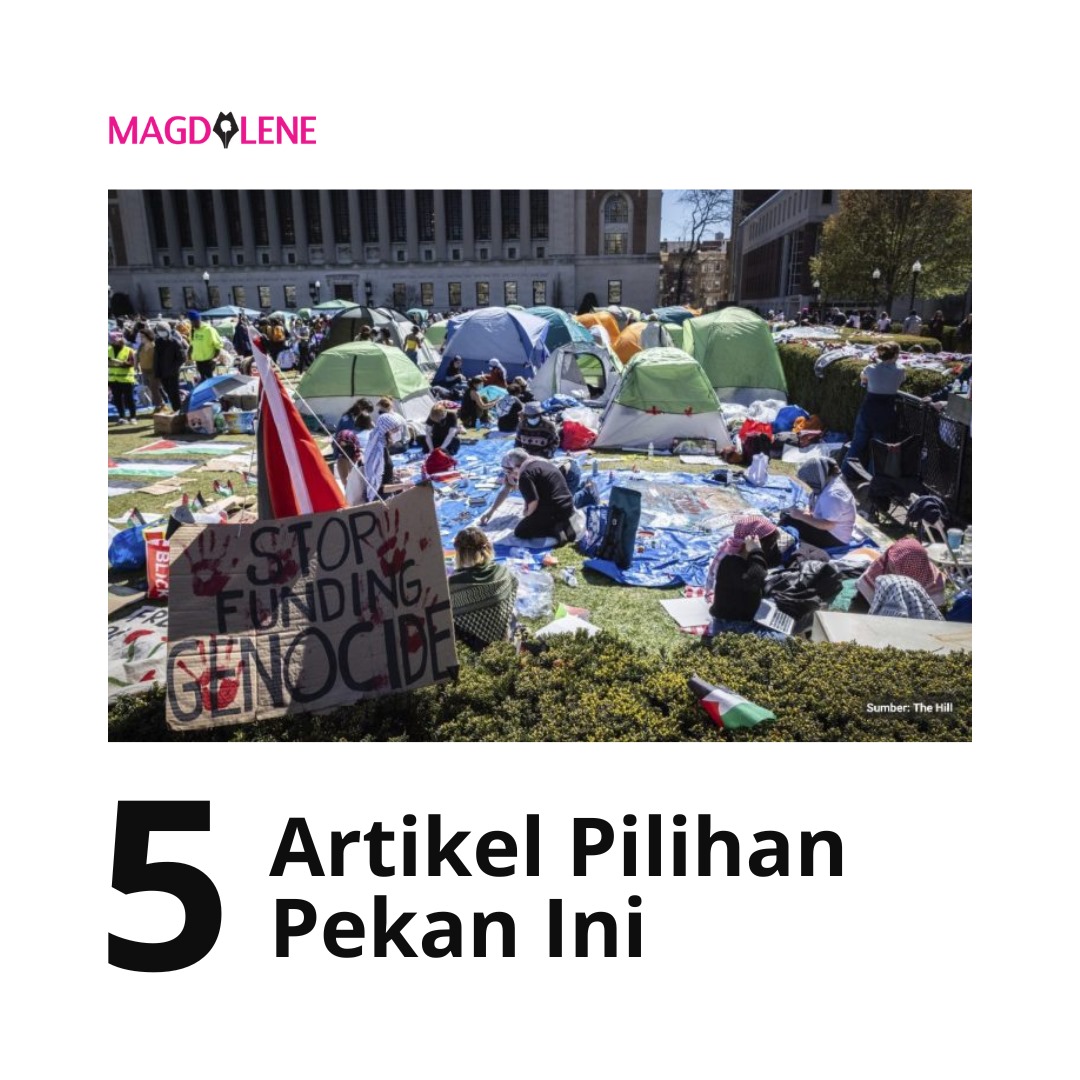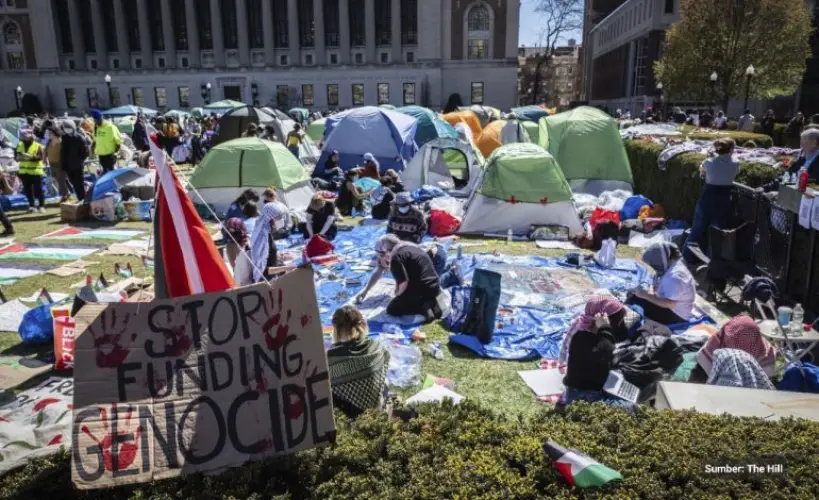Winners of Life: The Undeterred spirit of the 1965 Survivors
A new book captures the courage of women survivor of the 1965 atrocities.

Women were some of the worst targeted in the 1965 state-sponsored atrocities to purge communists and their alleged sympathizers that are estimated to have killed half a million people or more and kept hundreds of thousands of others incarcerated for years in Indonesia.
Photographer Adrian Mulya embarked on a long-term personal project to capture the courage of 1965 women survivors. Through his powerful portraits and storytelling by writer and activist Lilik HS published in the book Winners of Life, one could see the contrast between the women’s harrowing experience and their undeterred spirit to live on.
“These women have withstood many bitter and painful years with calm bravery. I want to portray them as the winners of life,” says Adrian. But not all winners bask in glory. To this day many of these women, who were members of the women’s group Gerwani or the youth group Pemuda Rakyat, are mentally scarred by the ‘PKI stigma’ that persists in society.
Launched on May 7 during the Asean Literary Festival in JakartaWinners of Life is part of a collective effort called Rekoleksi Memori initiated by a group of young artists and writers to shine a light on human rights abuses in Indonesia and take us a step closer to the truth of our past. The photos are currently on exhibition at Kedai Tempo, in East Jakarta.
Sri Suprapti
“When I was making my rounds in the prison, my eyes were alert. I would dig the trash bin. When I found rice leftovers, I picked it up.”
One morning in October 1965, Sri came home from the market to find her house burnt down. Her husband Isnanto, a labor union activist, and her eldest son were missing. Instinctively, Sri took her two children to flee the town and hid in the forest, surviving only on rice, salted fish, and soy sauce. Three months later, when Sri returned to town looking for food, an army officer captured her and sent her to a prison at Jalan Gandhi. She spent 10 years of her life in prison without trial, enduring violent interrogation sessions and unspeakable torture. She was released in 1975, and Isnanto in 2003. He died shortly after. Today, Sri stands tall with other women survivors, giving testimonies of the harrowing 1965 tragedy.
(Sri was born in Boyolali, 1928)

“I never ask for help. I am willing to work hard.”
People call them the ‘twin mother’. They are of the same age, sharing the same fate and physical traits. Both Kaminah and Kusdalini were active in Pemuda Rakyat organization – the youth movement of PKI. Just like any other active young women, they performed in theater, played badminton, learned English and German.
Their lives took a tragic turn in November 1965.
Kaminah, 18 years old at that time, had her young life taken away from her. She was sent to prison for the next seven years. Kusdalinah spent two years in prison, only to return to a life in which she was stigmatized, and where lost her job and her boyfriend.
Kusdalinah and Kaminah now share their life together in a tiny house in Solo. They sell crackers to nearby warungs, earning less than IDR 20,000 every day.
Being around women survivors of 1965 tragedy keeps them going strong till this very day.
(Kaminah was born in 1944, Kusdalini in 1945, in Solo)
 Mariana
Mariana
“Dancing is my way of expressing my longing for, and belonging to, the nation.”
As a member of the Pemuda Rakyat National Council, Mariana was selected to represent Indonesian youth to attend China’s Independence Day in Peking. On 27 September 1965, she left Jakarta with 13 other people, unaware of the sudden twist of fate that would befall her.
Chaos swept across Jakarta. In China, Mariana’s passport was banned; her communications with family members were completely cut off.
“Every 27th September, I always remember the 5AM departure in Kemayoran, accompanied by my friends. Leaving and not coming back,” she said.
Mariana visited Indonesia again in 1996, 31 years after she left.
(Mariana was born in Denpasar, 1942)
 Suti
Suti
“Gerwis’s programmes, especially political awareness for women and antipolygamy caught my attention.”
Suti was the chair of Gerwis – a precursor to Gerwani – in Musuk branch, Boyolali. Her husband, Hardjo, was an activist of Buruh Tani Indonesia or farmers union. Suti didn’t understand what was going on in Jakarta but the tension crept to her hometown. Suti and her husband escaped to Klaten after a group of men threatened to kill them both.
Following their relative’s advice, Suti and Hardjo agreed to report themselves but were sent to an open field instead. More than ten people were standing under the sun, their legs and hands tied. The torturers beat her up and stripped her naked. Suti’s heart shattered but her mind stayed strong while she was humiliated in public.
Suti and Hardo were jailed for one year, but tragedy followed her beyond the prison bars. One day, coming home after reporting herself to the authorities, Suti found her husband had killed himself by hanging himself on the ceiling. Since Hardjo died, Suti supported her only son by working in the field.
In 2004, Suti reunited with old friends whom she hadn’t met for 30 years or so. It’s moments like this: exchanging stories and singing together without fear that she treasures.
(Suti was born in Boyolali, 1920)
.jpg)
“The stigma of PKI is so strong”
Sana’ah joined Gerwani in the early 1960’s. Her father was a PKI leader in her hometown. Being a Gerwani member, she spoke out about anti-polygamy and illiteracy eradication programs.
In 1965, many houses in the village were raided, including hers. Sana’ah’s father was forcefully taken away and tortured in an abandoned school building. She was detained for several months but the PKI stigma lasted a lifetime.
These days, Sana’ah teaches women in her neighbourhood to make cookies and crafts. Unfortunately, in some instances, she has been reported as organizing illegal activities. “The stigma of PKI is so strong,” she said with a heavy heart.
(Sana’ah was born in Dolo, Central Sulawesi, 1947)
 Sri Muhayati
Sri Muhayati
“Finding a tiny piece of his bone would have made me happy.”
Sri Muhayati was a medical student at Gadjah Mada University, and active member of Concentrasi Gerakan Mahasiswa Indonesia (CGMI). Sri remembers going to villages in Klaten to eradicate rats as part of CGMI’s initiation program for junior students. Her father, Muhadi, was a PKI member as well as a local legislator in Yogyakarta.
In November 1965, soldiers raided Muhadi’s house and forcefully took him away. Muhadi was last seen in Wirogunan prison before he disappeared. Sri and her mother were sent from one prison to the next, for the next five years.
Upon her release, Sri found her name removed from the student list. Undeterred, she took up different jobs to make sure her younger siblings could study well. But the thought of her father kept coming back,
In 2000, her dream came true. In a mass digging organized by the National Commission on Human Rights (Komnas HAM) in Situkup Forest in Wonosobo, Moehadi’s remains were found. Muhayati heaved a sigh of relief as she could finally bury her father in a dignified manner.
 Mariyam Labonu
Mariyam Labonu
“If my husband’s death had gone through due process of law and proven guilty, I would accept it. But in this situation, where is justice?”
Mariyam Labonu was a teacher at Sekolah Rakyat. She was an active member of Gerwani in Besusu, Palu, Central Sulawesi, teaching literacy, sewing and baking. Her husband was the chair of Front Nasional and PKI in Central Sulawesi.
In February 1966, Mariyam and her three children were sent to jail for one year. She had never heard from her husband since he sent her a letter in 1967.












